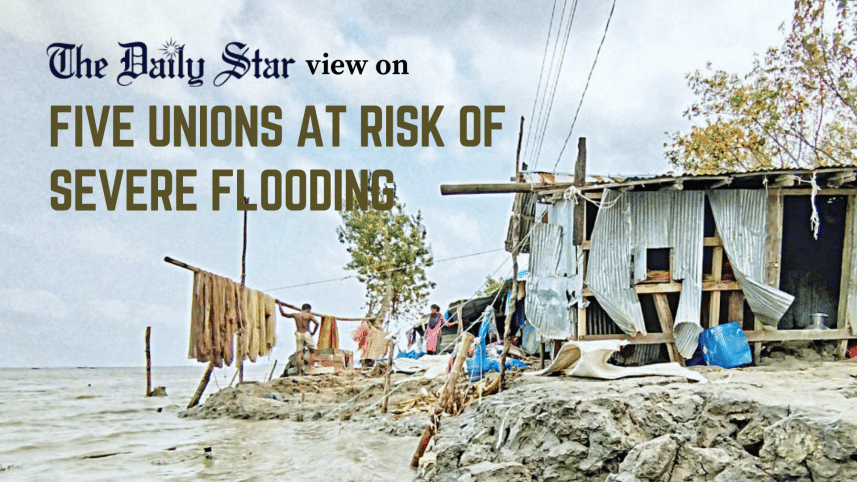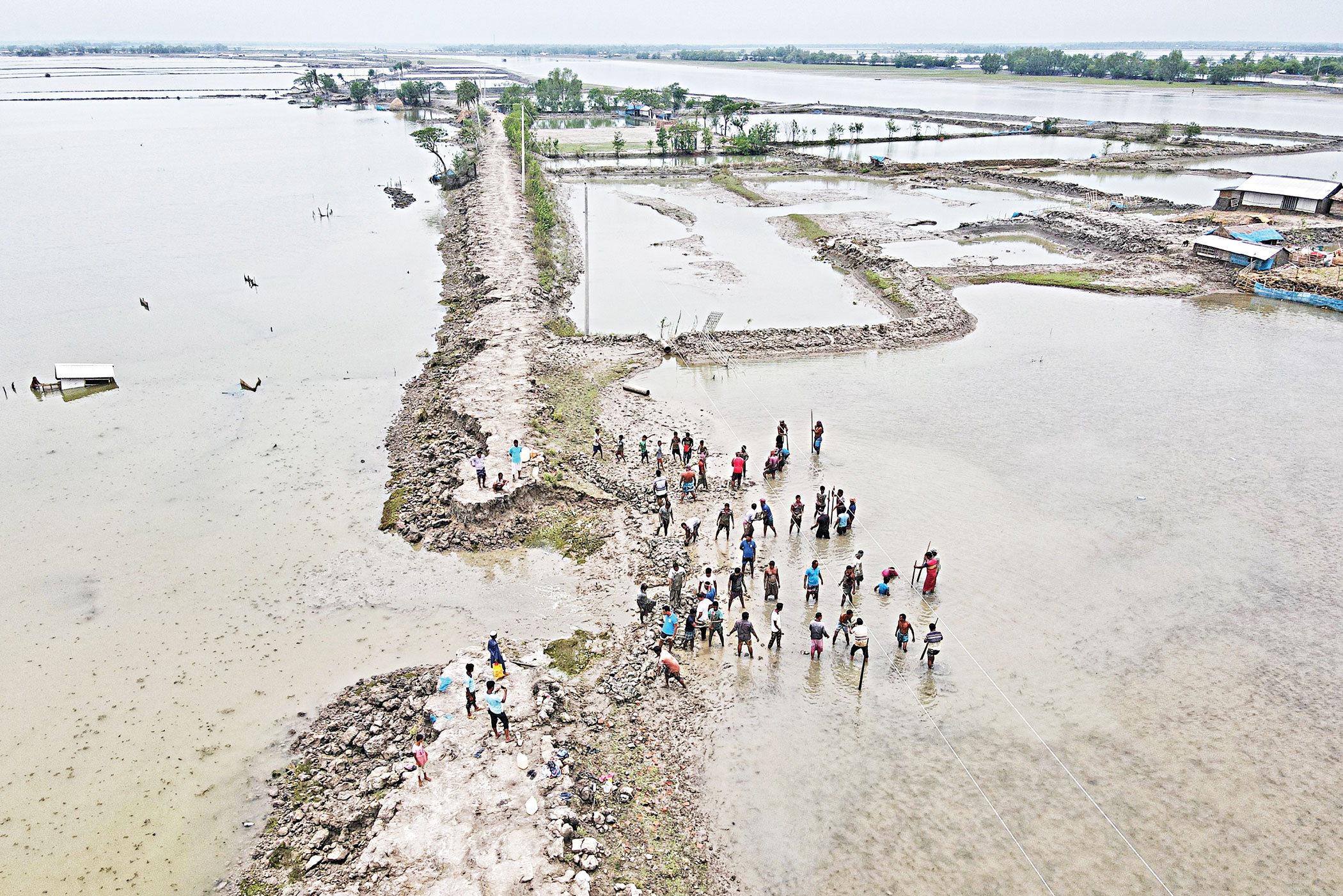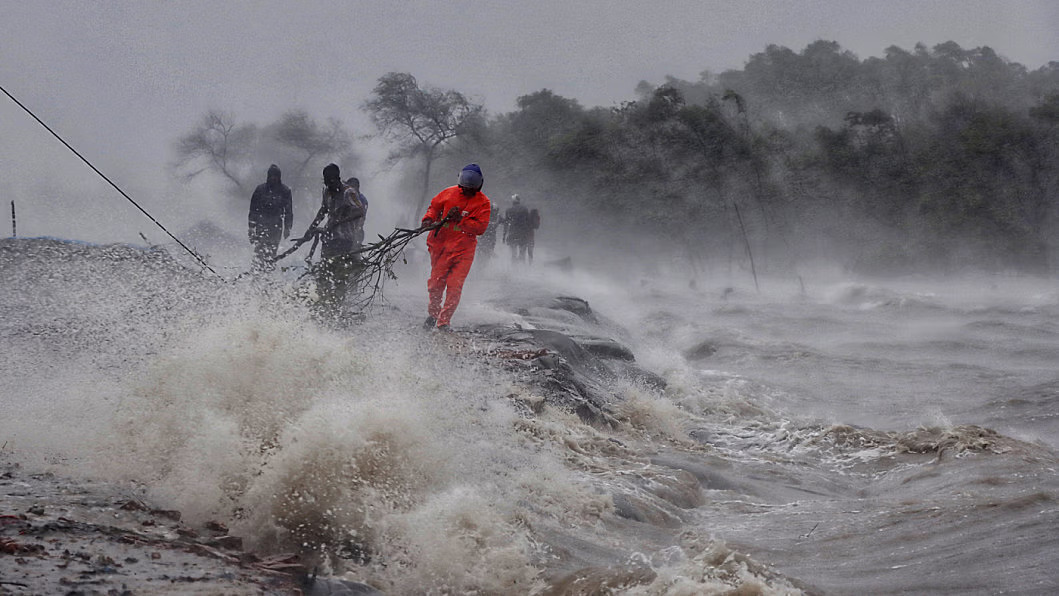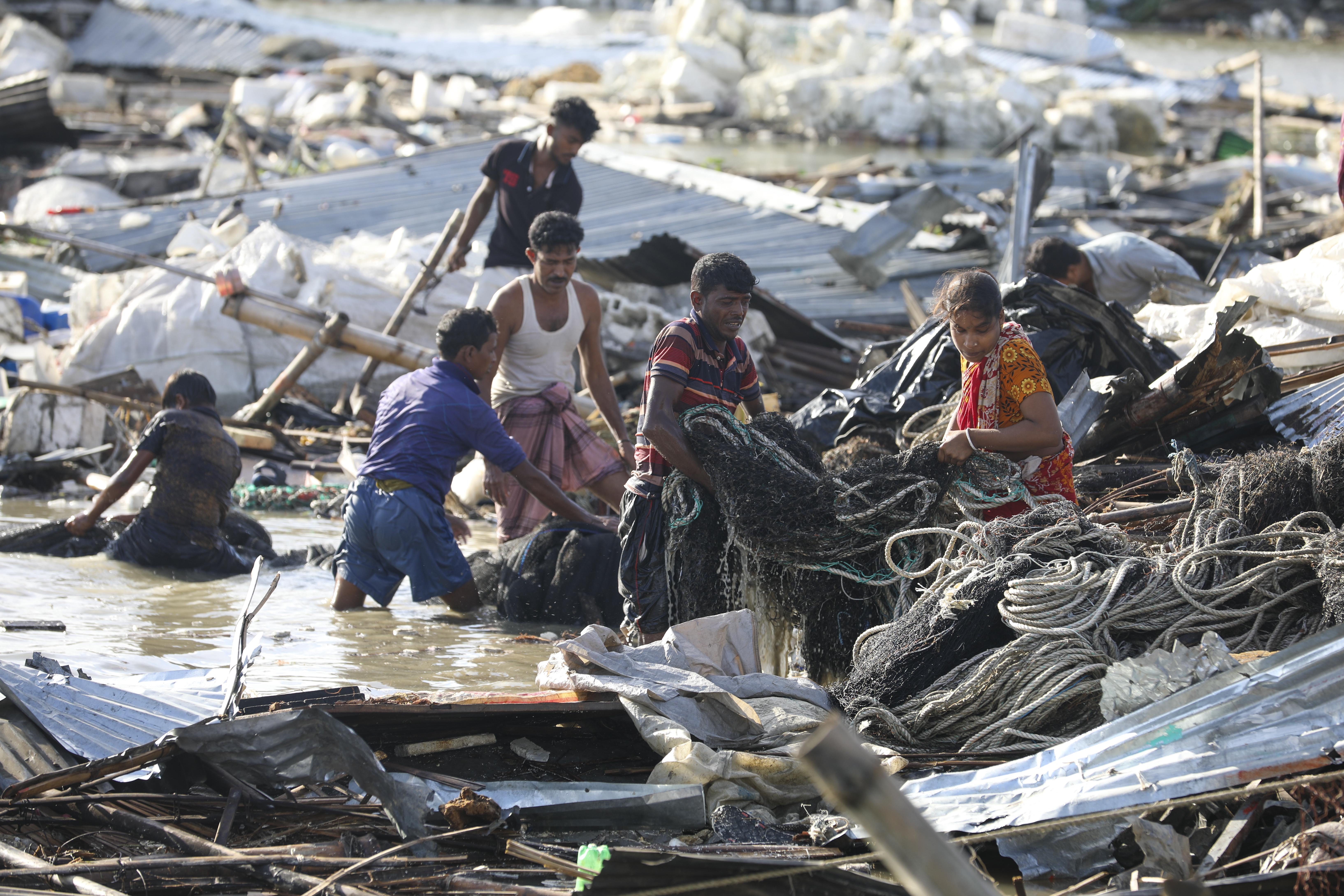Fragile embankments must be fortified ahead of monsoon

We are worried about the constant threat of displacement facing the residents of five unions at the Koyra upazila of Khulna. Flooding is a seasonal occurrence in this part of the land where embankments are often breached leading to the inundation of homes and croplands. However, the situation seems particularly bleak this year after Cyclone Remal battered most of the embankments here, leaving many areas already submerged and eroded. Come monsoon, residents fear they may have no choice but to relocate unless the embankments are urgently repaired and reinforced.
The question is, why are these structures so fragile? They are meant to serve as a critical line of defence; what's the point of having them if they cannot withstand the pressure of water for long? Experts attribute their delicate state to poor planning and the use of substandard construction materials. As per our report, many embankments and sluice gates along key rivers in the five unions are in a dilapidated state. Local officials at Bangladesh Water Development Board (BWDB) have also acknowledged the poor state of a significant portion of the embankments. In fact, some 73 kilometres out of 2,006 kilometres of embankments in the Khulna, Bagerhat, and Satkhira districts are reported to be in a dilapidated condition.
Over the last few years, we have repeatedly talked about the importance of durable and well-planned embankments. We have seen how fragile embankments in many parts of the country were frequently, and rather too easily, damaged leading to the loss of homes, croplands and livelihoods. Many thousands were forced to leave their homes permanently, their villages swallowed by tidal surges.
As the effects of climate change intensify, it is vital that the authorities also intensify their efforts to fortify existing safeguards against natural disasters. That means that there must be strict quality control in any project related to embankments so that those tasked with building/repairing them cannot get away with poor designs or use of low-quality materials. Officials in charge of the projects must also be made accountable for their negligence. The safety and well-being of people must be prioritised above all.



 For all latest news, follow The Daily Star's Google News channel.
For all latest news, follow The Daily Star's Google News channel. 


Comments